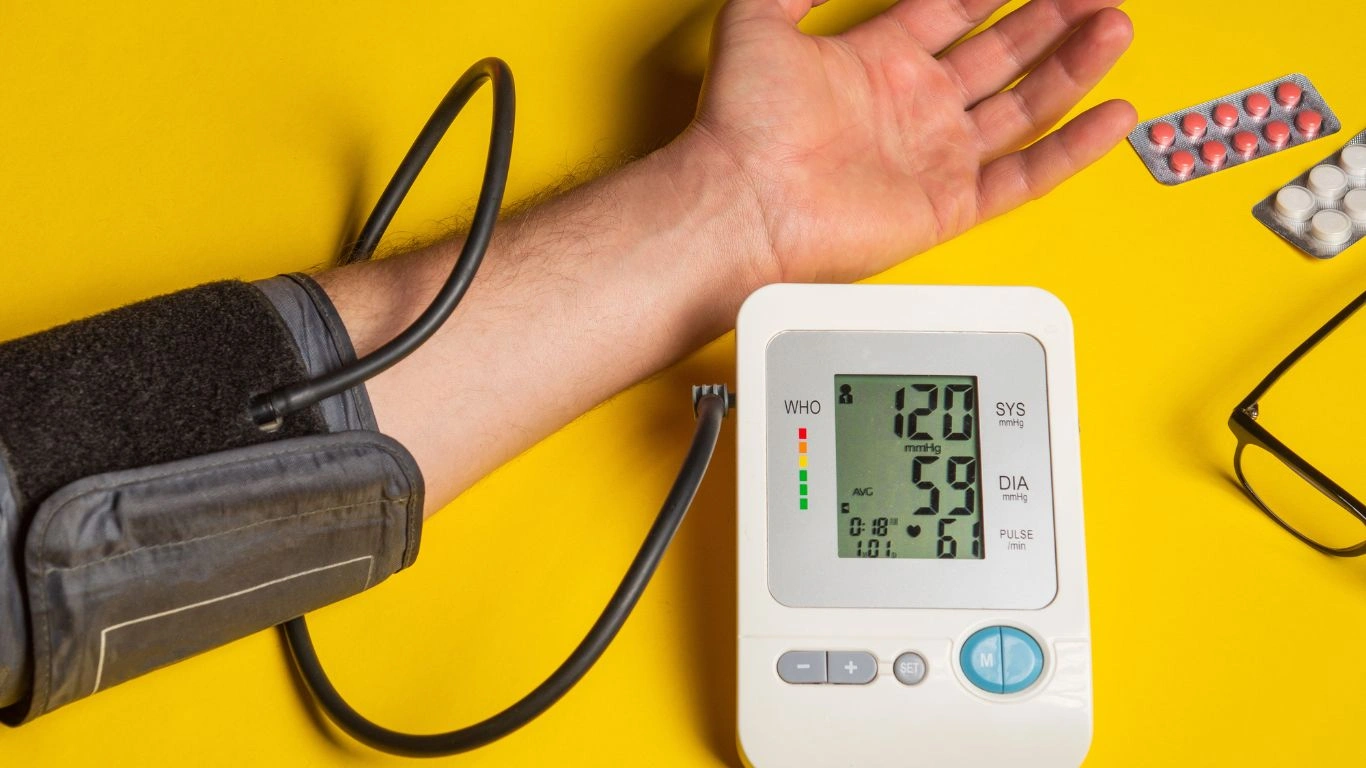Can High Blood Pressure Cause Brain Fog? Surprising Truths Revealed
If you’ve ever found yourself forgetting simple things, feeling mentally fuzzy, or just not quite thinking clearly, you might have wondered, can high blood pressure cause brain fog? As an internal medicine physician specializing in hypertension management, I’ve seen firsthand how elevated blood pressure doesn’t just affect the heart and kidneys — it can also play tricks on your brain. Many patients come in expecting to talk only about numbers and meds, but end up opening up about struggles with focus, memory, or that sluggish mental feeling we call brain fog.
It’s a common question, and for good reason. Brain fog isn’t a medical diagnosis by itself but more of a descriptive term patients use to explain a state of cognitive cloudiness or difficulty concentrating. When blood pressure is high, it can subtly impact the brain’s function in several ways. So today, I want to dive into this link, share some clinical insights, and help you understand why keeping your blood pressure in check might just clear up that mental haze.
What Exactly Is Brain Fog?
Before jumping into the relationship between hypertension and brain fog, let’s clarify what brain fog really means. You’ve probably experienced moments when your thoughts feel jumbled or you struggle to recall a word or an appointment. Brain fog encompasses a range of cognitive symptoms including:
- Difficulty concentrating or focusing on tasks
- Forgetfulness or memory lapses
- Feeling mentally tired or sluggish
- Confusion or slowed thinking
It’s important to know brain fog isn’t just “in your head” — it can be a real physiological response to underlying health issues, including high blood pressure.
My Experience With Patients Reporting Brain Fog
In my clinical practice, I often encounter patients who initially come for routine hypertension check-ups but then mention trouble with mental clarity. Many don’t immediately connect their cognitive issues with blood pressure, but when we start managing hypertension more aggressively, these brain fog symptoms frequently improve. That was true for Sarah, a 52-year-old patient who said she felt like she was “walking through a fog” for months. Once her blood pressure was better controlled, her sharpness and energy noticeably bounced back.
 How High Blood Pressure Affects Brain Function
How High Blood Pressure Affects Brain Function
So, can high blood pressure cause brain fog? The short answer is yes — it can, through multiple mechanisms. Here’s how:
- Reduced Blood Flow to the Brain: Elevated blood pressure can damage arteries over time, including those supplying your brain. When blood vessels narrow or stiffen, less oxygen-rich blood reaches brain tissue, leading to cognitive difficulties.
- Microvascular Damage: High blood pressure can cause tiny leaks or blockages in the brain’s microvessels, resulting in what doctors call “small vessel disease.” This condition is linked to slower processing speed and memory problems.
- Inflammation and Oxidative Stress: Hypertension triggers inflammation and oxidative stress, which can damage brain cells and interfere with communication between neurons.
From a medical standpoint, these effects collectively contribute to symptoms like brain fog, confusion, and even increase the risk of more serious issues such as vascular dementia or stroke if left untreated.
The Silent Impact: Why Brain Fog Often Goes Unnoticed
Many patients don’t realize that their brain fog could be linked to high blood pressure because the symptoms are subtle and come on gradually. Unlike a headache or chest pain, brain fog isn’t a sharp symptom—it’s more of a creeping cloudiness that patients may blame on stress, poor sleep, or aging.
In my experience, raising awareness about this connection is crucial. When patients understand that managing their blood pressure might also help improve their cognitive function, they’re often more motivated to stick with lifestyle changes and medications.
 Early Signs to Watch For
Early Signs to Watch For
Recognizing brain fog related to hypertension early can make a huge difference. If you have high blood pressure and notice any of the following, it’s worth discussing with your healthcare provider:
- Increased forgetfulness or losing track of conversations
- Difficulty multitasking or focusing on work
- Feeling mentally fatigued despite adequate sleep
- Slow reaction times or trouble making decisions
By addressing these symptoms early and controlling blood pressure effectively, we can often reverse or reduce cognitive impairment before it worsens.
 How Managing Blood Pressure Can Improve Brain Fog
How Managing Blood Pressure Can Improve Brain Fog
One thing I always emphasize to my patients is that controlling high blood pressure isn’t just about avoiding heart attacks or strokes — it can also make a real difference in how clear your mind feels day-to-day. From my experience in internal medicine, I’ve seen many folks shrug off the brain fog as “just aging” or “too much stress,” but in reality, better blood pressure control often leads to sharper thinking and improved memory.
Why does this happen? When you lower your blood pressure to a healthy range, you’re reducing the strain on those tiny blood vessels in the brain that we talked about earlier. This helps restore better blood flow, reduces inflammation, and supports the brain cells that keep your mental processes humming smoothly.
What Does Good Blood Pressure Control Look Like?
Managing hypertension effectively means more than just popping pills. It’s a combined approach involving lifestyle changes, medication adherence, and regular monitoring. Here’s what I usually recommend for patients:
- Consistent Monitoring: Keep track of your blood pressure regularly — either at home or with your doctor — so you can see how your numbers are doing over time.
- Medication Management: If prescribed, take your meds as directed. Some patients hesitate because they don’t “feel” sick, but trust me, these medications work behind the scenes to protect your brain and body.
- Diet and Exercise: A balanced diet low in sodium and rich in fruits, veggies, and whole grains can help lower blood pressure. Pair that with regular physical activity — even walking daily makes a difference.
- Stress Reduction: Chronic stress can spike blood pressure, so find ways to relax — whether it’s meditation, hobbies, or spending time with loved ones.
Personally, I encourage my patients to think of blood pressure control as a lifelong commitment, not just a short-term fix. When you take care of your heart and vessels, your brain benefits too.
 Lifestyle Changes That Help Clear Brain Fog
Lifestyle Changes That Help Clear Brain Fog
In addition to medications, lifestyle plays a huge role in both blood pressure and brain function. Over the years, I’ve advised countless patients on these simple yet effective habits that can help banish brain fog and improve overall cognitive health:
1. Prioritize Quality Sleep
Sleep is when your brain does a lot of housekeeping — clearing out toxins and consolidating memories. High blood pressure can interfere with sleep quality, especially if you have sleep apnea (which often coexists with hypertension). Getting 7-8 hours of restful sleep each night can dramatically reduce brain fog and improve concentration.
2. Stay Hydrated
Dehydration, even mild, can make your thinking sluggish. Drinking enough water throughout the day supports blood flow and nutrient delivery to the brain.
3. Cut Down on Processed Foods and Excess Salt
Processed foods often contain hidden sodium, which can raise blood pressure. When I counsel patients, I stress reading labels and cooking fresh meals whenever possible to keep salt intake in check.
4. Move Your Body Regularly
Exercise isn’t just good for your heart; it also promotes new brain cell growth and improves mood. You don’t need to run marathons — even gentle activities like yoga or gardening can boost mental clarity.
 When to See a Doctor About Brain Fog and Blood Pressure
When to See a Doctor About Brain Fog and Blood Pressure
It’s important not to ignore persistent brain fog, especially if you have known high blood pressure. In my clinical experience, early evaluation can catch underlying problems before they progress to more serious cognitive decline.
Consider reaching out to your healthcare provider if you notice:
- Ongoing memory difficulties that interfere with daily activities
- Confusion or disorientation beyond typical forgetfulness
- Sudden or worsening headaches accompanied by brain fog
- Any neurological symptoms like weakness, vision changes, or speech difficulties
Your doctor may recommend blood pressure optimization, cognitive assessments, or brain imaging if necessary. Don’t hesitate to discuss your symptoms openly — brain fog is a real and valid concern, and proper management can make a big difference.
 Long-Term Effects of High Blood Pressure on Cognitive Health
Long-Term Effects of High Blood Pressure on Cognitive Health
While managing blood pressure can often improve brain fog symptoms, it’s crucial to understand the long-term impact uncontrolled hypertension can have on your brain. As an internal medicine physician, I’ve witnessed cases where patients ignored or underestimated their blood pressure numbers, only to experience worsening cognitive issues over time. Unfortunately, this isn’t uncommon, and it highlights why early intervention is so important.
High blood pressure over years can accelerate brain aging. It contributes to the shrinkage of brain tissue, especially in areas responsible for memory and executive function. This progressive damage may eventually lead to vascular dementia or increase the risk of Alzheimer’s disease. Although not every person with hypertension will develop these conditions, the risk significantly rises when blood pressure remains untreated or poorly controlled.
From a practical standpoint, this means what you do today with your blood pressure can either protect or harm your brain health decades down the line. I always remind my patients: think of your brain as your most valuable asset—guard it fiercely by controlling your blood pressure.
Insights from Clinical Research and Practice
There is growing scientific evidence supporting the connection between hypertension and cognitive decline. Studies consistently show that individuals with well-managed blood pressure have better cognitive outcomes compared to those with uncontrolled hypertension. This aligns closely with what I see in daily practice. Patients who actively engage in managing their blood pressure often report clearer thinking and less mental fatigue.
On the flip side, uncontrolled high blood pressure can contribute to microbleeds in the brain, white matter lesions, and other subtle brain injuries visible on MRI scans. These injuries often correlate with memory loss, slowed thinking, and impaired judgment.
 Practical Tips to Keep Your Brain Sharp While Managing Hypertension
Practical Tips to Keep Your Brain Sharp While Managing Hypertension
Besides the basics of blood pressure control and lifestyle changes we covered earlier, here are a few additional tips from my clinical experience that can help you maintain mental sharpness as you manage hypertension:
- Stay Socially Active: Engaging with friends, family, and community helps stimulate your brain and reduce stress. Social interaction is a natural cognitive booster.
- Keep Learning: Challenge your brain regularly by reading, puzzles, or learning new skills. Mental exercise complements physical health efforts.
- Mind Your Mental Health: Anxiety and depression can worsen brain fog and blood pressure control. Don’t hesitate to seek professional support if you’re struggling emotionally.
- Limit Alcohol and Avoid Smoking: Both can elevate blood pressure and negatively affect cognitive function over time.
Remember, small, consistent steps add up. The goal is not perfection but progress — and every positive change supports both your heart and brain.
References
- American Heart Association
- Alzheimer’s Association
- Centers for Disease Control and Prevention
- American Gastroenterological Association
Disclaimer
The information provided here is for educational purposes only and should not replace personalized medical advice. If you experience persistent brain fog, cognitive changes, or have concerns about your blood pressure, please consult a healthcare professional for an accurate diagnosis and tailored treatment plan. Every individual’s health situation is unique, and management strategies should be discussed with your physician.

Dr. Gwenna Aazee is a board-certified Internal Medicine Physician with a special focus on hypertension management, chronic disease prevention, and patient education. With years of experience in both clinical practice and medical writing, she’s passionate about turning evidence-based medicine into accessible, actionable advice. Through her work at Healthusias.com, Dr. Aazee empowers readers to take charge of their health with confidence and clarity. Off the clock, she enjoys deep dives into nutrition research, long walks with her rescue pup, and simplifying medical jargon one article at a time.


 How High Blood Pressure Affects Brain Function
How High Blood Pressure Affects Brain Function Early Signs to Watch For
Early Signs to Watch For How Managing Blood Pressure Can Improve Brain Fog
How Managing Blood Pressure Can Improve Brain Fog Lifestyle Changes That Help Clear Brain Fog
Lifestyle Changes That Help Clear Brain Fog When to See a Doctor About Brain Fog and Blood Pressure
When to See a Doctor About Brain Fog and Blood Pressure Long-Term Effects of High Blood Pressure on Cognitive Health
Long-Term Effects of High Blood Pressure on Cognitive Health Practical Tips to Keep Your Brain Sharp While Managing Hypertension
Practical Tips to Keep Your Brain Sharp While Managing Hypertension




